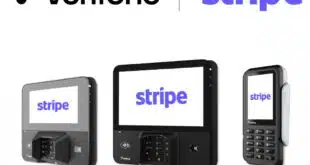In a bid to forge closer ties to the increasingly important business of creating and marketing mobile apps and other software products, PayPal Inc. this week announced it is waiving transaction-processing fees for nascent developers in a new program it calls Startup Blueprint.
The offer is limited to $50,000 in fees, or 18 months, whichever comes first, according to a PayPal blog post. The $50,000 limit on waived fees implies a dollar-volume limit of $1.6 million, according to a company spokesperson. PayPal’s ordinary processing fee for small online merchants is 2.9% of volume plus 30 cents per transaction.
Other terms are that startups must be privately held and have $3 million or less in annual sales or have been in business for less than five years. PayPal says it is looking for companies that produce Web or mobile software or hardware, primarily for “commerce,” though it is open to other applications.
Candidates must be nominated by PayPal or by so-called accelerators, companies that specialize in investing in early-stage technology companies. PayPal says it is working with three such companies to start with, and will add more, though it is limiting its scope to North America and the Europe, Middle East, and Africa for now. The three initial incubators are 500Startups, Seedcamp, and Elevator.
While Startup Blueprint follows close on the heels of PayPal parent eBay Inc.’s $800 million acquisition of Chicago-based payments-technology startup Braintree Payments Solutions LLC, PayPal in an “FAQ” page on its site describing the new program says it is not looking to use it to identify potential acquisitions. The purpose of the program, the page says, is to “foster and support the startup community.”
Still, observers see a parallel with PayPal’s recent efforts to beef up its tech arsenal in the wake of such developments as mobile payments and the company’s strategy to penetrate the physical point of sale. Indeed, Startup Blueprint lets PayPal reach tech startups even smaller and less established than Braintree, observers say. “It seems in line with PayPal’s recent Braintree acquisition,” says Dan Schatt, an e-payments expert and former PayPal executive. “They’re taking steps to make it seamless for any startup that wants to get into payments processing.”
At the same time, the PayPal spokesperson says the program will include small companies, known as independent software vendors, that sell to merchants, opening the possibility that it could extend PayPal’s reach with brick-and-mortar merchants, observers say.
The new program is also an efficient way to identify—and support–the next generation of winning providers of payments tech, both PayPal and observers say. Offers like free processing, they say, can cover more companies than direct venture investments. “We intentionally decided to develop a startup program so we can help more startups,” says the PayPal spokesperson in an e-mail response. “With a venture wing, you can only back certain companies, and with [Startup Blueprint] we can support more startups.”
The more companies PayPal can help out, the more likely it is to back a winner, says Adil Moussa, principal at Adil Consulting, a payments research and consulting firm in Omaha, Neb. “Some [startups] are not going to work and will die, others will be profitable, but one or two are going to change the way business is done,” he says in an e-mail message. “So [Startup Blueprint] is a safe bet with a huge potential upside.”





